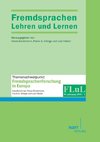
History of the Germanic peoples
Source: Wikipedia. Pages: 202. Chapters: History of Germany, History of the Netherlands, History of Austria, History of Belgium, Beowulf, Germanic languages, Anglo-Saxon England, Germanic peoples, Suebic Kingdom of Galicia, Alsace, Franks, Germanic Wars,... Viac o knihe
Produkt je dočasne nedostupný
38.46 €
bežná cena: 43.70 €
O knihe
Source: Wikipedia. Pages: 202. Chapters: History of Germany, History of the Netherlands, History of Austria, History of Belgium, Beowulf, Germanic languages, Anglo-Saxon England, Germanic peoples, Suebic Kingdom of Galicia, Alsace, Franks, Germanic Wars, Chronology of the Germanic Wars, Battle of the Teutoburg Forest, Lombards, Goths, Francia. Excerpt: The concept of Germany as a distinct region in central Europe can be traced to Roman commander Julius Caesar, who referred to the unconquered area east of the Rhine as Germania, thus distinguishing it from Gaul (France), which he had conquered. The victory of the Germanic tribes in the Battle of the Teutoburg Forest (AD 9) prevented annexation by the Roman Empire. Following the fall of the Roman Empire, the Franks conquered the other West Germanic tribes. When the Frankish Empire was divided among Charlemagne's heirs in 843, the eastern part became East Francia. In 962, Otto I became the first emperor of the Holy Roman Empire, the medieval German state. In the High Middle Ages, the dukes and princes of the empire gained power at the expense of the emperors. Martin Luther led the Protestant Reformation against the Catholic Church after 1517, as the northern states became Protestant, while the southern states remained Catholic. The two parts of the Holy Roman Empire clashed in the Thirty Years' War (1618-1648), which was ruinous to the twenty million civilians. 1648 marked the effective end of the Holy Roman Empire and the beginning of the modern nation-state system, with Germany divided into numerous independent states, such as Prussia, Bavaria and Saxony. After the French Revolution and the Napoleonic Wars (1803-1815), feudalism fell away and liberalism and nationalism clashed with reaction. The 1848 March Revolution failed. The Industrial Revolution modernized the German economy, led to the rapid growth of cities and to the emergence of the Socialist movement in Germany. Prussia, with its capital Berlin, grew in power. German universities became world-class centers for science and the humanities, while music and the arts flourished. Unification was achieved with the formation of the German Empire in 1871 under the leadership of Prussian Chancellor Otto von Bismarck. The Reichstag, an elected parliament, had only a limited role in the imperial government. By 1900, G
- Vydavateľstvo: Books LLC, Reference Series
- Formát: Paperback
- Jazyk:
- ISBN: 9781157603115



 Anglický jazyk
Anglický jazyk 
 Nemecký jazyk
Nemecký jazyk 

 Ruský jazyk
Ruský jazyk 



